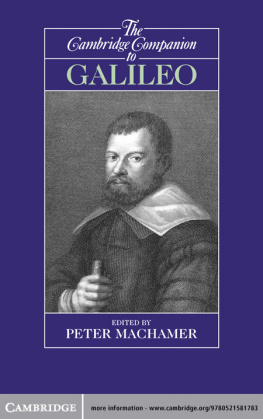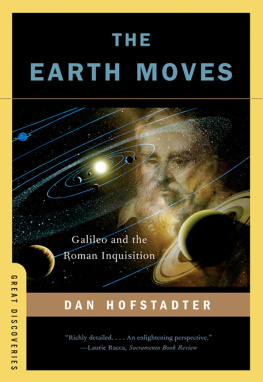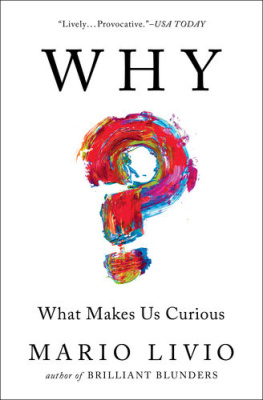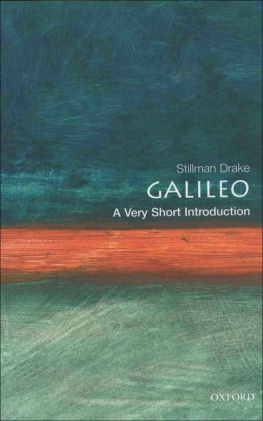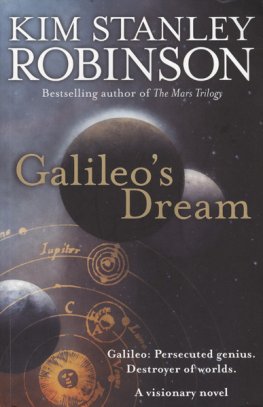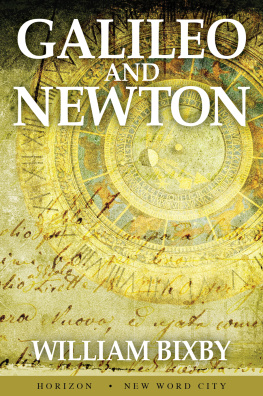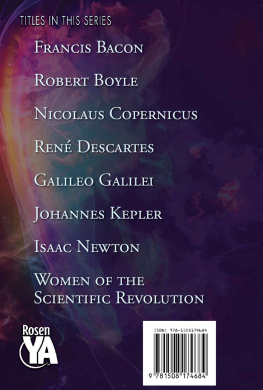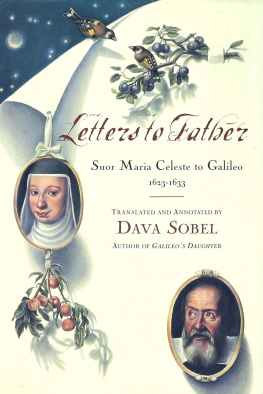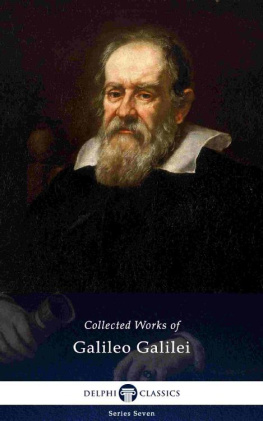Galilei Galileo - The Cambridge Companion to Galileo
Here you can read online Galilei Galileo - The Cambridge Companion to Galileo full text of the book (entire story) in english for free. Download pdf and epub, get meaning, cover and reviews about this ebook. City: Cambridge, year: 2006, publisher: Cambridge University Press, genre: Religion. Description of the work, (preface) as well as reviews are available. Best literature library LitArk.com created for fans of good reading and offers a wide selection of genres:
Romance novel
Science fiction
Adventure
Detective
Science
History
Home and family
Prose
Art
Politics
Computer
Non-fiction
Religion
Business
Children
Humor
Choose a favorite category and find really read worthwhile books. Enjoy immersion in the world of imagination, feel the emotions of the characters or learn something new for yourself, make an fascinating discovery.
- Book:The Cambridge Companion to Galileo
- Author:
- Publisher:Cambridge University Press
- Genre:
- Year:2006
- City:Cambridge
- Rating:3 / 5
- Favourites:Add to favourites
- Your mark:
- 60
- 1
- 2
- 3
- 4
- 5
The Cambridge Companion to Galileo: summary, description and annotation
We offer to read an annotation, description, summary or preface (depends on what the author of the book "The Cambridge Companion to Galileo" wrote himself). If you haven't found the necessary information about the book — write in the comments, we will try to find it.
The Cambridge Companion to Galileo — read online for free the complete book (whole text) full work
Below is the text of the book, divided by pages. System saving the place of the last page read, allows you to conveniently read the book "The Cambridge Companion to Galileo" online for free, without having to search again every time where you left off. Put a bookmark, and you can go to the page where you finished reading at any time.
Font size:
Interval:
Bookmark:

THE CAMBRIDGE COMPANION TO GALILEO
Each volume of this series of companions to major philosophers contains specially commissioned essays by an international team of scholars, together with a substantial bibliography, and will serve as a reference work for students and nonspecialists. One aim of the series is to dispel the intimidation such readers often feel when faced with the work of a difficult and challenging thinker.
Not only a hero of the scientific revolution, but after his conflict with the church, a hero of science, Galileo is today rivaled in the popular imagination only by Newton and Einstein. But what did Galileo actually do, and what are the sources of the popular image we have of him? This collection of essays is unparalleled in the depth of its coverage of all facets of Galileo's work. A particular feature of the volume is the treatment of Galileo's relationship with the church. It will be of particular interest to philosophers, historians of science, cultural historians, and those in religious studies.
New readers and nonspecialists will find this the most convenient, accessible guide to Galileo available. Advanced students and specialists will find a conspectus of recent developments in the interpretation of Galileo.
The Cambridge Companion to
GALILEO
Edited by
Peter Machamer
University of Pittsburgh

CAMBRIDGE UNIVERSITY PRESS
Cambridge, New York, Melbourne, Madrid, Cape Town, Singapore, So Paulo
Cambridge University Press
The Edinburgh Building, Cambridge CB2 2RU, UK
Published in the United States of America by Cambridge University Press, New York
www.cambridge.org
Information on this title: www.cambridge.org/0521581788
Cambridge University Press 1998
This publication is in copyright. Subject to statutory exception and to the provisions of relevant collective licensing agreements, no reproduction of any part may take place without the written permission of Cambridge University Press.
First published 1998
Reprinted 1999
A catalogue record for this publication is available from the British Library
ISBN-10 0-521-58178-8 hardback
ISBN-10 0-521-58841-3 paperback
Transferred to digital printing 2005
CONTRIBUTORS
RICHARD J. BLACKWELL is professor of philosophy at Saint Louis University.
RIVKA FELDHAY is the director and professor of the Cohen Institute for the History and Philosophy of Science and Ideas, Tel-Aviv University, Israel.
PAULO GALLUZZI is Director of the Institute and Museum of the History of Science in Florence, and professor of philosophy at the University of Florence, Italy.
WALLACE E. HOOPER, currently part of the American Indian Studies Research Institute at Indiana University, was the Galileo Postdoctoral fellow at the Museum of the History of Science in Florence, Italy in 19934, and Maria Luisa Righini Postdoctoral fellow in 19956.
PETER MACHAMER is professor of history and philosophy of science at the University of Pittsburgh.
ERNAN MCMULLIN is Director Emeritus of the Program in History and Philosophy of Science and O'Hara Professor Emeritus of philosophy at the University of Notre Dame.
MARCELLO PERA is professor of philosophy, on leave, at the University of Pisa, Italy. He is currently a Senator of the Italian Republic.
PIETRO REDONDI is associate professor of history of science at Universita di Bologna, Italy. He is the author of Sadi Carnot et la technologie francaise and Galileo Heretic.
MICHAEL SEGRE teaches history of science at the University of Munich. He is author of In the Wake of Galileo.
WILLIAM SHEA is Director of the Institute for Philosophy at Universite Louis Pasteur, Strasbourg, France.
N. M. SWERDLOW is professor in the Department of Astronomy and Astrophysics at The University of Chicago. His research is concerned with the history of the exact sciences, particularly astronomy from antiquity through the seventeenth century.
WILLIAM A. WALLACE is professor of philosophy at the University of Maryland and professor emeritus of philosophy and history at The Catholic University of America.
PREFACE
As in all such work this volume could not have come about without help and encouragement from many people. Those who have fostered my interest in Galileo go back many, many years. I am pleased to call many of the Galileo group my friends. Names leap to mind: From early days Bill Shea, Gerd Buchdahl, Tom Settle, Maria Louisa Bonelli Righini, Silvio Bedini, David Lindberg, Dudley Shapere, Noel Swerdlow, and Ed Collins all were important. Later Ernan McMullin, Bill Wallace, Bob Butts, Joe Pitt, Winifrid Wisan, Noretta Koertge, Sam Westfall, Raymond Fredette, Bob Westman, Larry Laudan, Maurice Finocchiaro, and Stillman Drake aided my inquires and corresponded with me on various topics. Still more recently, Rivka Feldhay, Maurizio Mamiani, Marcello Pera, Lorenz Kruger, Wallace Hooper, Michael Segre, Paolo Galluzzi, and Mario Biagioli have shared insights. Of course, Ted McGuire, my good old friend, is as always a source of encouragement and joy and a pain. Oh, the stories one could tell.
This project was conceived when Michael Ruse introduced me to Terry Moore at Cambridge University Press. The real work began while I was on sabbatical and living in Tuscany, in the country house of my friend and vineyard companion, Marcello Pera, who has now forsaken philosophy to become a senator in the Italian government. The Luccese hills, and the wines and foods of Toscano were a great support as I attempted to gather together people to contribute to the volume. Maurizio Mamiani and my students at Udine also propelled this endeavor forward. The proofing on this book was started in Athens, when I was teaching there. Samantha Statidaki was a great help in getting these original papers organized and edited. The early editing was done by my dear friend, Patty Tascarella, a reporter for the Pittsburgh Business Times, who unselfishly gave of her time and energy. It is in most part due to her that these papers have some consistency and structure. Debora Richards, in her careful and conscientious way, was a great help on the bibliography and the index.
It is with regret that I have to say that some papers originally intended for the volume will not appear. Francesco Barone became too ill to revise his work on Galileo's logic. Mario Biagioli, and then Biagioli and Al van Helden, originally had agreed to contribute, but their lives became so hectic that they had to drop out of the project. Alfonso Perez de Laborda did not finish his piece, having taken on the job as the first founder and rector of the newly established Universidada di Catholica di Avila, in Spain. Some others whom I asked to contribute were unable to for various reasons, so I am sorry not to have papers by Tom Settle, Gideon Freudenthal, and some others. The volume is the poorer for the lack of these contributions.
But to all who aided and abetted, in direct and indirect ways, many thanks.
Peter Machamer
Pittsburgh
September 1997
PETER MACHAMER
Introduction
Galileo is one of the larger than life heroes of history. This status was conferred during his lifetime and grew with each succeeding century. Not only was he the hero of the Scientific Revolution, but after his troubles with the Catholic Church he became the hero of science. Today, only the names of Newton and Einstein rival that of Galileo in popularity and imagination. But yet we must ask, to what is his popularity due? What did Galileo actually do that made his image so great and so long-standing?
Font size:
Interval:
Bookmark:
Similar books «The Cambridge Companion to Galileo»
Look at similar books to The Cambridge Companion to Galileo. We have selected literature similar in name and meaning in the hope of providing readers with more options to find new, interesting, not yet read works.
Discussion, reviews of the book The Cambridge Companion to Galileo and just readers' own opinions. Leave your comments, write what you think about the work, its meaning or the main characters. Specify what exactly you liked and what you didn't like, and why you think so.

